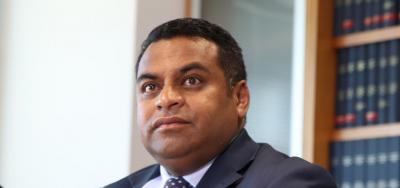The Commerce Commission will soon have the power to initiate and conduct market studies Thomas Coughlan reports for Newsroom.
A market study is when the commission looks at a given sector or market to ascertain whether it functions in the best interests of consumers. Currently, the Commerce Commission is only allowed to conduct market studies in the telecommunications industry.
It was a legislated market study that eventually led to regulations allowing 2 Degrees to break into the mobile telecommunications market, creating a 26 percent fall in prices since 2008.
The proposed changes are part of Commerce Minister Kris Faafoi’s Commerce Amendment Bill, which had its first reading on Thursday night. Faafoi has indicated he would like the market studies powers in place by the end of the year.
New Zealand’s Commerce Commission is one of the few organisations of its kind without the ability to conduct market studies across all industries. A 2015 OECD survey of 62 competition authorities found that only New Zealand and Chile did not possess market study powers.
A Regulatory Impact Statement from MBIE has said that the change could deliver $62 million in benefits to New Zealand over three years. This figure was calculated by adapting the benefits to British consumers from its market studies, which were estimated to be £576.6 million (NZ$1.112 billion) over three years from 2012-2015.
Under the new legislation, either the Commerce Commission itself or the Commerce and Consumer Affairs Minister would be able to initiate a study of a given market or sector.
Remember Telecom?
The Commerce Commission has previously tried to extend its remit to include market study powers. In the 1990s a report into competition in the telecommunications sector was appealed in court, which told the Commission that “fishing expeditions” were outside the power of the Commerce Act.
Telecommunications is one sector that has already benefitted from enhanced competition. The unusual situation of the Commerce Commission only being allowed to conduct market studies in the telecommunications industry is a result of the 2001 Telecommunications Act, rather than the Commerce Act. Market studies have been effective in telecommunications, breaking up the Telecom (now Spark) and Vodafone duopoly and allowing the emergence of 2Degrees, which introduced price competition.
Former commerce commissioner Donal Curtin told Newsroom that market studies made sense for the Commission.
“The act talks about promoting competition for the good of consumers and you’d think that promoting competition would mean having a look to see if competition was working properly at any given point,” Curtin said.
“Most countries have come to the conclusion that if you have a competition authority, it’s kind of sensible that it should be able to find out whether the competition is working in places,” he said.
Monopoly money
The change will come with costs, many borne by businesses themselves. MBIE found that the funding for market studies was likely to be modest which would mean a low number of studies would actually be undertaken.
Faafoi told Newsroom that the funding that had been allocated meant that only two or three studies a year would be conducted.
“About $1.5 million per annum was allocated and I’m told that a medium-sized market study might cost in the region of $500,000 so that gives you an indication of what might be possible,” Faafoi said.
“It would be a big step to call one, both for the Government and the Commerce Commission, so they’d have to be smart to make sure they had enough resource to cover them,” he said.
The cost to individual businesses could be high. The MBIE statement said that one business reported the cost of answering a 13 page-long request from the Commerce Commission cost it in excess of $20,000.
Another stakeholder said that a mandatory request from a regulator had required two months’ full-time work by seven staff resulting in over 200,000 documents being handed over to the regulator. A business told MBIE that the cost of defending an investigation from the Commerce Commission was in the region of $600,000.
But the study concluded that benefits were likely to exceed costs and that current costs associated with responding to and defending against the Commerce Commission were not a suitable guide as market studies would focus on the “higher-level” functions of markets, rather than a particular firm.
Curtin said that the change would not only increase competition, but give consumers faith that industries and prices were fair.
“They can give a sector a clean bill of health,” he said.
“It’s not just a stick to beat people round the head with, but it can actually also say ‘look, these industries are actually competitive despite what talkback radio might be saying',” he said.
A broad scope
Market studies could take a broad view of the sector and consider things like the profitability of market players, rates of innovation, barriers to entry, and customer satisfaction.
A competition report would then be compiled that could recommend change to legislation, policy and industry behaviour.
{ A Newsroom release } || April 16, 2018 |||
Have your news read on MSCNewsWire
